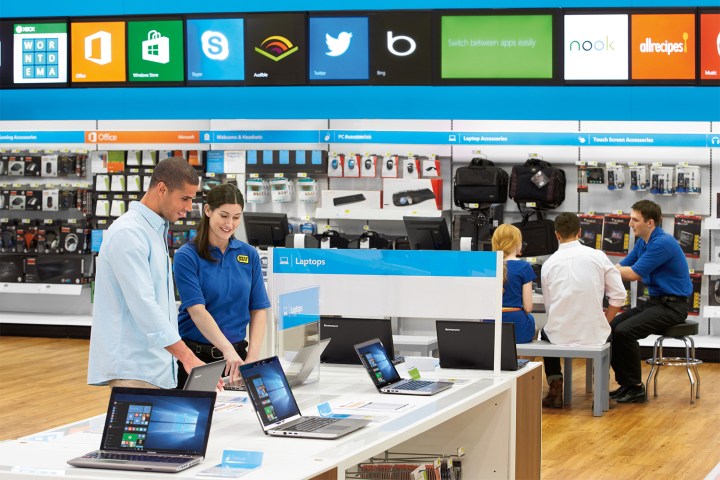
The best laptops are expensive devices, but they’re ones a lot of us depend on every day and occasionally need replacing. Regardless of how you feel about the increasing tension in Trump’s trade war, US consumers are about to feel the effects of it in a big way. American tech players from Intel to Apple are now going public about how this the average laptop buyer will feel the pressure.
As the US threatens another round of tariffs on Chinese goods, US consumer tech companies are warning of dangerous price hikes for laptops in the coming months. Intel, Microsoft, Dell, and HP are now predicting an average laptop price increase of $120. The companies also pointed out in a joint statement that this will hit budget laptop buyers hardest, saying “A price increase of that magnitude may even put laptop devices entirely out of reach for our most cost-conscious consumers.”
China may soon be much less tolerant of an Intel-run lab in Shanghai.
Until recently, consumer fallout from the US-China trade war was speculative. But with time running out on the Huawei ban’s 90-day probationary period and a looming $300 billion increase in tariffs on Chinese imports, this alarming laptop price spike is much more likely to become a reality. US companies are now wasting no time in taking precautions. Some are accelerating long-term plans to weather the storm, while others are lobbying the US government to divert it entirely.
The fact that the federal government is talking about increasing the tariff burden on China suggests that the initial $200 billion tariffs currently in place are likely to stay. Considering the complex nature of economic relationships between Chinese and US tech companies, it’s impossible to say which products will get hit and by how much with exact precision. Pricing will also depend on how much consumers are able to hold out until the trade dispute resolves, rather than buy now out of necessity (such as a replacement for an ailing device). At this point, though, the initial round of tariffs has been in place long enough that it will probably impact the back-to-school and even holiday laptop buying frenzies.

Huawei’s position at the eye of the storm further complicates laptop pricing and, crucially, development. As Moore’s law slows the shrinking in chip die size (and, by extension, core count) and OEMs turn to connectivity to drive innovation, the 5G connectivity aspirations of the likes of some companies could hit a major roadblock with the world’s largest 5G equipment manufacturer getting its supply line cut. Intel, specifically its Project Athena, also illustrates how US-China trade friction could grind future research and development to a halt, as China may soon be much less tolerant of an Intel-run lab in Shanghai.
Consumers can probably expect new laptops to cost noticeably more in 2019.
American tech companies are no longer waiting for the trade war to blow over. A group of prominent US-based chip manufacturers is exhorting the US government not to escalate the trade war. Only weeks after it announced its ban on selling to Huawei, Intel and Xilinx reportedly urged the US government to reverse course.
Other American tech players are moving to insulate themselves from future trade spats by diminishing their dependence on China. Apple, in particular, is worried about the toll that tariffs on Chinese imports will take. The threat of massive pricing spikes in Apple components, which would get passed on to customers, is so concerning that the company is considering a pivot away from a Chinese manufacturing base.
Whatever form the ramifications of US-China economic tensions ultimately take — even if they were resolved today — consumers can probably expect new laptops to cost noticeably more in 2019. And with potential surges in research and development costs, the impact on the future could extend well beyond 2019.



